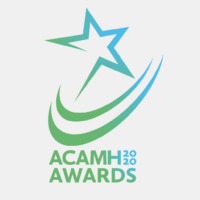Eating disorders
-

Research Review: Current evidence for avoidant restrictive food intake disorder: Implications for clinical practice and future directions
Open Access paper from JCPP Advances – ARFID (avoidant restrictive food intake disorder) is a relatively new diagnostic term covering a number of well-recognised, clinically significant disturbances in eating behaviour unrelated to body weight/shape concerns. Its phenotypic heterogeneity combined with much about the condition remaining unknown, can contribute to uncertainties about best practice. While other reviews of the evidence base for ARFID exist, few specifically target health care professionals and implications for clinical practice. Tanith Archibald and Rachel Bryant-Waugh.
Read more -

Review: Digital experiences and their impact on the lives of adolescents with pre-existing anxiety, depression, eating and nonsuicidal self-injury conditions – a systematic review
Open Access paper from the CAMH journal 2023 Special Issue – “We review publications relating to anxiety, depression, eating disorders and nonsuicidal self-injury to identify common and condition-specific digital experiences and how these may be implicated in the origins and maintenance of these mental health conditions”. Katarzyna Kostyrka-Allchorne (pic) et al.
Read more -

Incidence and outcomes of eating disorders during the pandemic: what has changed?
During the pandemic, the NHS CAMH eating disorder services saw almost a doubling in the number of referrals for eating disorders and waiting list times are now surpassing what is recommended. This surge in eating disorder presentations in clinical settings led researchers to wonder what impact, if any, Covid-19 had on the incidence of eating disorders in young people.
Read more -

Early neurodevelopmental problems and risk for avoidant/restrictive food intake disorder (ARFID) in 4-7-year-old children: A Japanese birth cohort study
Open Access paper from JCPP Advances – “We examined the occurrence of early NDPs in 4–7-year-old children with suspected ARFID and how predictive early NDPs are of ARFID”. Lisa Dinkler et al.
Read more -

Editorial Perspective: A perfect storm – how and why eating disorders in young people have thrived in lockdown and what is happening to address it
Open Access paper from the JCPP – “The number of children and young people referred to community eating disorders services escalated dramatically shortly after onset of the Covid-19 pandemic. Many presented with medical instability following restrictive eating and needed acute hospitalisation to correct malnutrition”. Dasha Nicholls (pic)
Read more -

Dr. Kelly Klump
Kelly L. Klump, Ph.D., is a MSU Foundation Endowed Professor in the Department of Psychology at Michigan State University. She is the Co-Director of the Michigan State University Twin Registry and serves as a Specialist Subject Editor for JCPP.
Read more -

November 2020 – The Bridge
The research featured in this issue covers a wide range of topics relevant to our work with young people, including neurodevelopmental, emotional, and behavioural disorders, their comorbidity, and their links with functioning and quality of life.
Read more -

Results of the ACAMH Awards 2020
Congratulations to all winners and nominees of the ACAMH Awards 2020.
Read more -

Are autistic behaviours a trait or a state of anorexia nervosa?
Anorexia nervosa (AN) and autism spectrum disorder (ASD) seem to co-occur more frequently than would be expected by chance.1,2 Yet because most studies investigating the nature of this co-occurrence have used a retrospective design, where the data are prone to recall bias, we don’t know whether the elevation of autistic traits in AN is present from childhood or rather from AN onset.
Read more -

October 2020 – The Bridge
Welcome to the October 2020 issue of The Bridge. Here in the UK, October is Black History Month, a time for celebration of the achievements and contributions of Black people to British society, as well as continued learning about Black history.
Read more